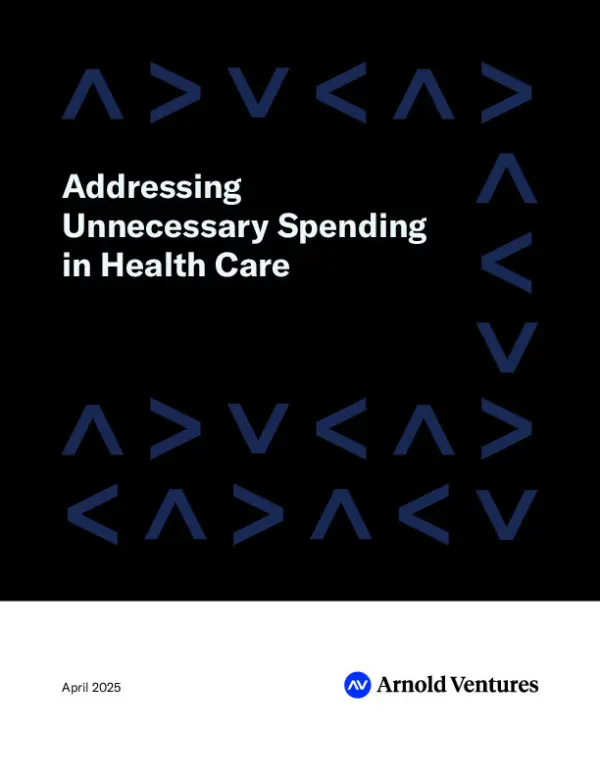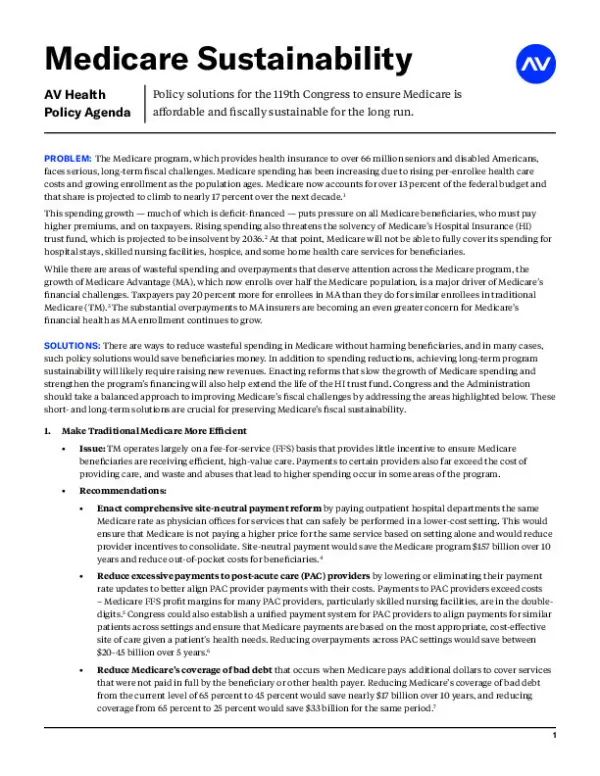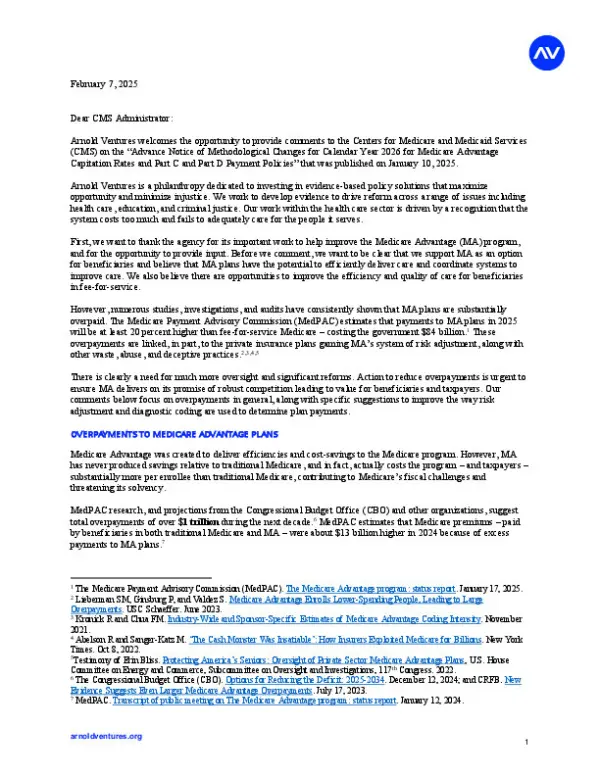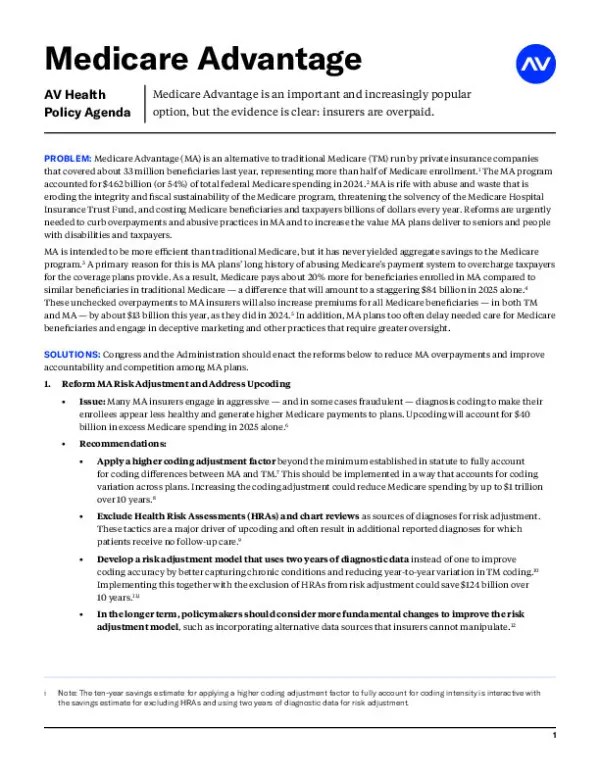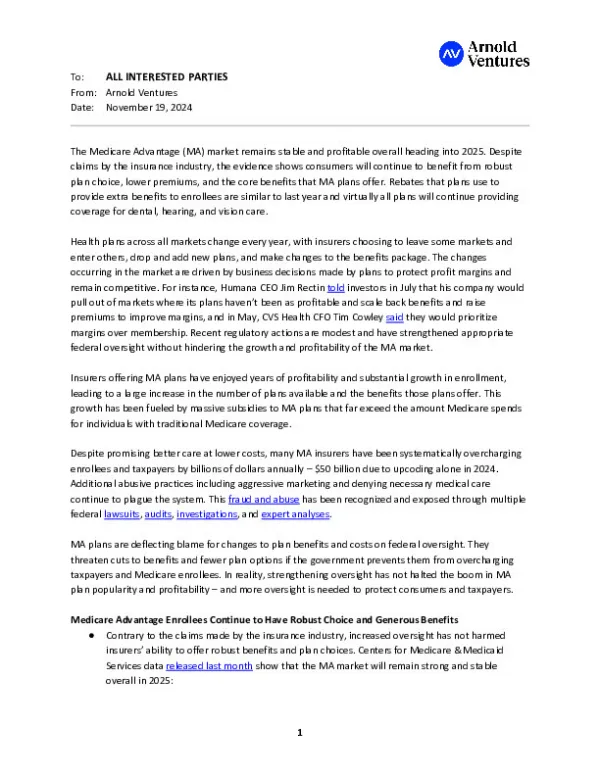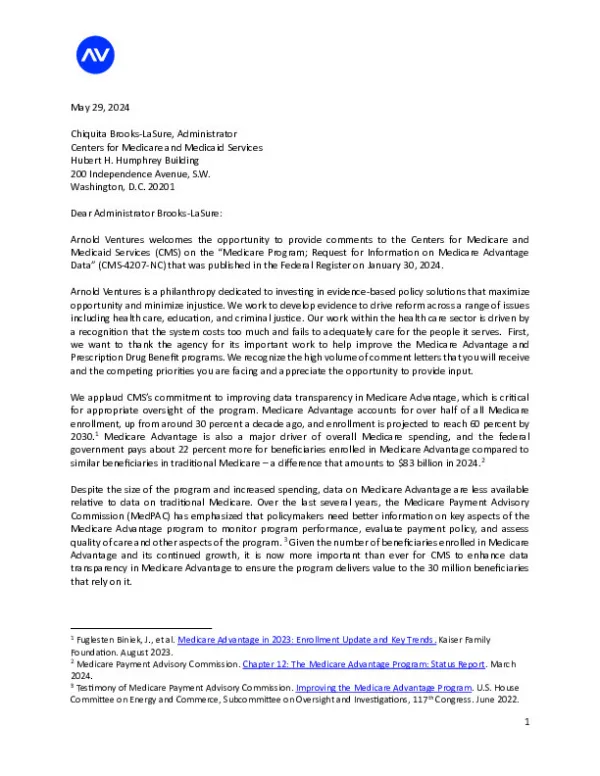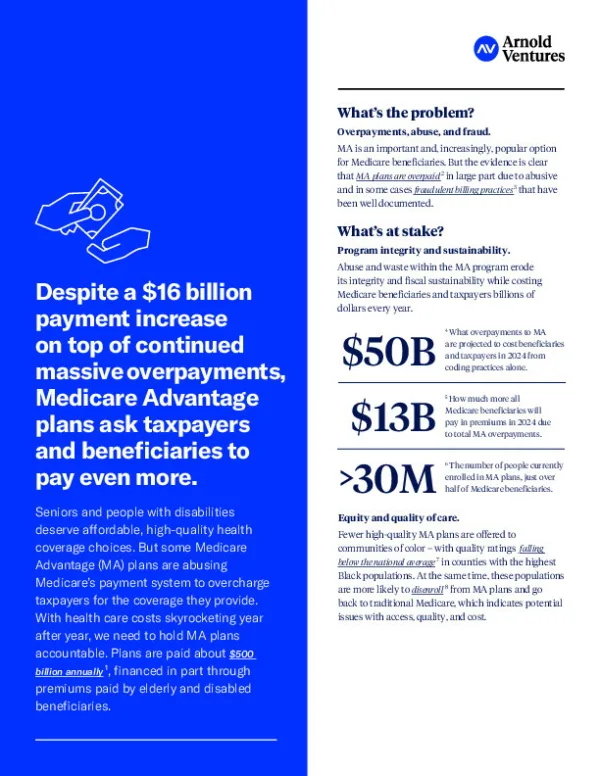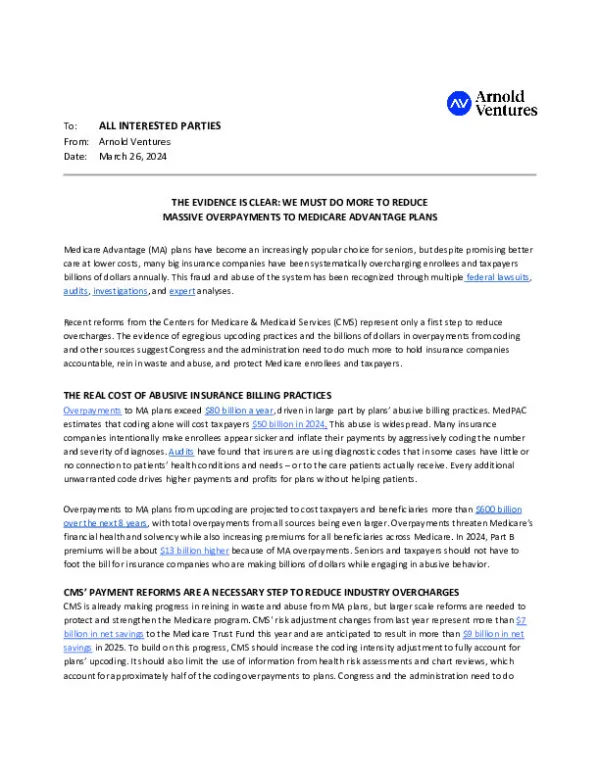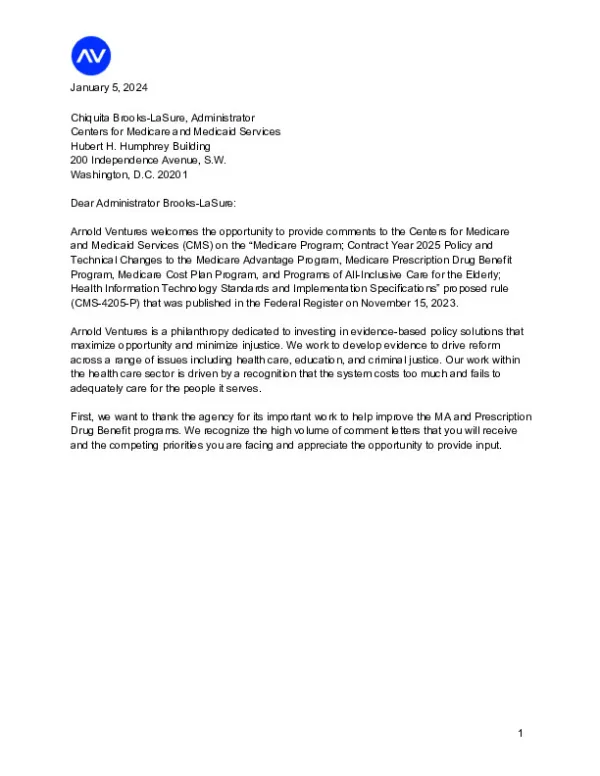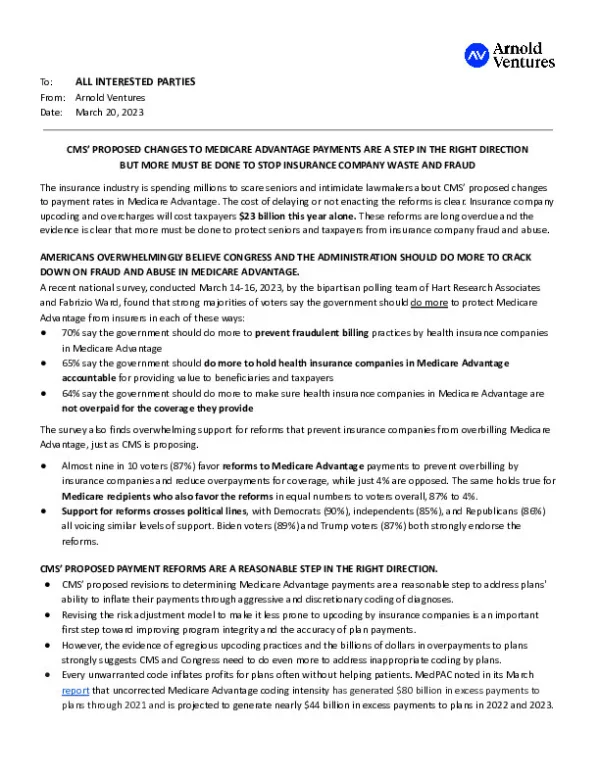Medicare Sustainability

Medicare provides health care coverage to more than 62 million older adults (aged 65 or older) and adults with disabilities in the United States. To ensure Medicare is there when people need it, the program must be affordable and fiscally sustainable for the long run.
Medicare is on an unsustainable path. A large and growing share of federal spending, Medicare is projected to consume almost one-fifth of the federal budget in the next decade. Medicare spending is increasing due to rising per capita health care costs and the aging of the baby boomer generation — which is causing an unprecedented number of individuals to enroll in Medicare. This creates fiscal challenges for the program. Even within the next four years, components of the Medicare program face insolvency. Medicare’s Hospital Insurance trust fund, which pays for health care services related to beneficiaries’ stays in hospitals, skilled nursing facilities, and hospice, is projected to run out of money in 2031. This means Medicare will no longer be able to fully pay for these services, and health care coverage and access for millions of Medicare beneficiaries will be at risk.
We aim to sustain Medicare for the future by working toward policy changes that would bring the program’s spending and revenue in line while ensuring the program continues to meet beneficiaries’ needs. This will require a balanced approach of spending reductions and financing reforms. We are supporting research and policy work that focuses on: reducing overpayments to certain providers and Medicare Advantage plans, improving efficiency and competition throughout the program, and strengthening Medicare’s financing. These changes would help shore up the program in the near-term and improve its long-term sustainability.

Image: Getty Images
Right Now
We’re working on…
In the News
Stories
See all

Resources
See allMeet the Team
All People
Mohammed Abdi
Health Care Analyst – Medicare Sustainability & Provider Payment Incentives (he/him)
Josh Gordon
Medicare and Commercial Prices Fellow

Mark E. Miller
Executive Vice President of Health Care

Dan Ryan
Health Care Manager – Medicare Sustainability (he/him)

Erica Socker
Vice President of Health Care – Payor Reform








